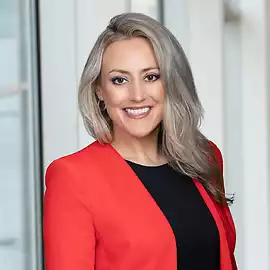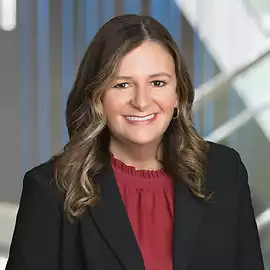On April 14, 2025, the United States Court of Appeals for the Seventh Circuit issued a decision in a case involving the federal Anti-Kickback Statute (“AKS”) and marketing services that the court framed as an appeal “test[ing] some of the outer boundaries of the [AKS]….”
In United States vs. Mark Sorensen, the Court of Appeals overturned the judgment of conviction against Mark Sorensen from the United States District Court for the Northern District of Illinois. In the district court case, Sorensen, the owner of SyMed Inc., a durable medical equipment (“DME”) distributor, was found guilty of one count of conspiracy and three counts of offering and paying kickbacks in return for the referral of Medicare beneficiaries to his DME company, which the United States claimed resulted in SyMed’s fraudulently billing $87 million and receiving $23.6 million in payments from Medicare. The district court judge denied Sorensen’s post-trial motions for acquittal and for a new trial, finding that the evidence regarding willfulness allowed the jury to find beyond a reasonable doubt that Sorensen “knew from the beginning of the agreement in 2015 that the percentage fee structure and purchase of the [doctors’] orders violated the law.” He was sentenced to 42 months in prison and ordered to forfeit $1.8 million.
The charges against Sorensen stemmed from SyMed’s arrangements with several advertising and marketing companies, a DME manufacturer, and a billing company. Under the business model for which Sorensen was convicted, the marketing companies published advertisements for orthopedic braces, to which interested patients could respond using an electronic form providing their names, addresses, and doctors’ contact information. This information was forwarded to call centers where sales agents from the marketing companies would contact the patients to discuss ordering braces and generating prescription forms. After collecting additional information, and with consent from patients to proceed, the sales agents faxed the prefilled, but unsigned, prescription forms to patients’ physicians. The prescription forms contained SyMed’s name and corporate logo and listed the devices to be ordered. SyMed paid the DME manufacturer 79 percent of the payments it received from Medicare or another payor, and kept 21 percent, from which it paid the billing company for its services. The DME manufacturer paid the marketing companies out of its 79 percent share based on the number of leads each company generated. The government argued that the payments to these marketing companies constituted illegal kickbacks under the AKS because they were intended to induce the referral of Medicare beneficiaries.
According to the Seventh Circuit, a critical fact leading to its reversal of Sorensen’s conviction was that the physicians who received these unsigned prescription forms got to decide whether to sign and return the forms to SyMed and the billing company for review—or to ignore them. According to the court’s decision, physicians declined 80 percent of the orders from one of the marketing companies and “regularly ignored forms sent by” the other marketing company.
The appellate court reversed the district court’s decision for insufficient evidence, noting that “[t]he other individuals and businesses Sorensen paid were advertisers and a manufacturer. They were neither physicians in a position to refer their patients nor other decisionmakers in positions to ‘leverage fluid, informal power and influence’ over healthcare decisions.” The Seventh Circuit characterized the marketing companies’ communications to physicians as “proposals for care, not as referrals”, noting that to the extent they could be considered “recommendations” to physicians, “they were frequently overruled.” The appellate court further stated, “[t]he key point is that, on this record, physicians always had ultimate control over their patients’ healthcare choices and applied independent judgment in exercising that control.” Consequently, the appellate court concluded that “Sorensen’s payments thus were not made for “referring” patients within the meaning of the statute.” Interestingly, the court focused more on the percentage payments to the DME manufacturer and less on the “per lead” payments to the marketing companies. This was likely due to the low use or conversion of orders for orthopedic braces by physicians using these prefilled forms by the marketing companies which, to the court, demonstrated that the physicians retained and exercised control over whether an orthopedic brace would be ordered for their patients.
In considering whether the 80 percent declination rate experienced by the one marketing company was dispositive, the Seventh Circuit declined to adopt a bright-line rule. Instead, the appellate court noted in a footnote to its decision that “[o]ur focus is on whether a payee exerts informal but substantial influence so that a physician’s choice of care becomes a formality rather than an exercise of independent medical judgment.”
The Department of Health and Human Services (“HHS”) Office of Inspector General (“OIG”) has previously considered pay per lead arrangements with advertising companies in advisory opinion (“AO”) 08-19. In AO 08-19, the HHS-OIG allowed a pay per lead arrangement involving chiropractors under the limited circumstances presented in that AO: the advertising company was not a health care provider, the advertising did not target only Federal health care program beneficiaries, fees paid by the chiropractors would not depend on whether the lead became an actual patient, and the advertisers would not steer patients to a particular chiropractor. The OIG’s analysis in AO 08-19 also relied on the fact that the advertising company did not collect any health care information, such as payor information, medical history, or diagnosis information about prospective patients using the advertiser’s platform.
The Seventh Circuit’s decision signals that payments to marketing firms for services like advertising and lead generation are less likely to be considered illegal kickbacks, provided that (1) the marketing firms do not exert direct influence over prescribing physicians, and (2) physicians retain genuine autonomy in their medical decisions, in which one factor that may be considered is the conversion rate of a marketing lead to a physician order. While the Seventh Circuit did not provide an explicit definition of the term “referrals” for purposes of the AKS, the court’s emphasis on the independent decision-making of the physicians suggests a potential limit on what actions by a third party can be considered to trigger the AKS's prohibition against payments for referrals. This could create a clearer path forward for legitimate marketing activities while still prohibiting direct inducements to healthcare providers for specific referrals. We will monitor how other Circuits treat similar issues and report back on our findings.
Blog Editors
Authors
- Senior Counsel
- Member of the Firm

